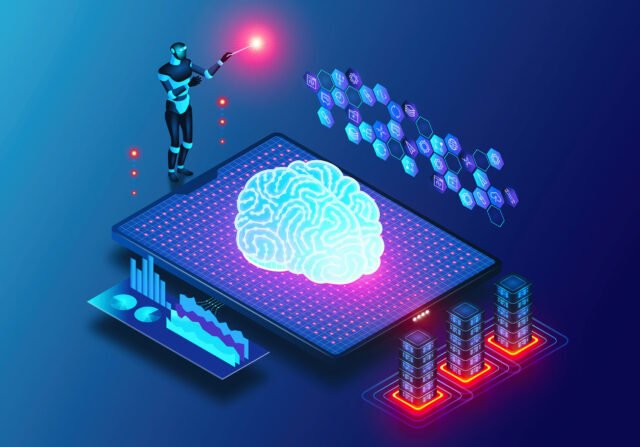Hybrid Intelligence (HI) represents a collaborative future where human cognition and artificial intelligence (AI) systems unite to enhance decision-making, creativity, and problem-solving capabilities across various domains. This integration seeks to leverage the intuitive and emotional strengths of humans with the computational power of AI, aiming to develop systems that are not only efficient but also empathetic and adaptive to human needs.
Core Concepts of Hybrid Intelligence
Hybrid Intelligence is about more than just technological advancement; it’s about creating systems that complement and enhance human capabilities. Key areas of focus include:
- Human-AI Collaboration: Ensuring that AI systems and humans can work together effectively. This includes designing interfaces that are intuitive for humans and developing AI that can understand and predict human needs and responses.
- Adaptive Learning: Both humans and AI systems can learn from each other through adaptive learning algorithms. This co-learning approach allows both entities to evolve over time, improving their efficiency and effectiveness in tasks.
- Ethical and Responsible AI: Transparency, fairness, and accountability are pivotal in HI systems. Ensuring these systems adhere to ethical guidelines is crucial for their acceptance and effectiveness in real-world applications.
Applications and Implications
The practical applications of Hybrid Intelligence are vast and varied. In the realm of healthcare, HI can enhance diagnostic accuracy and personalize patient care by integrating medical expertise with predictive analytics. In agriculture, it is used to balance productivity and biodiversity, suggesting optimized farming strategies that consider ecological impacts.
Industry sectors such as finance, engineering, and customer service are also benefiting from HI, where systems can perform complex analyses and support human decision-making with greater speed and accuracy. Educational fields gain as well, with adaptive learning platforms that adjust to the needs of individual students, creating a more personalized learning experience.
Challenges and Future Directions
While the potential of Hybrid Intelligence is vast, there are significant challenges that need to be addressed:
- Integration Complexity: Combining human and machine intelligence involves complex integration of very different systems, which can be challenging both technically and practically.
- Ethical and Social Concerns: As with any AI technology, there are concerns about privacy, job displacement, and the potential for bias in decision-making processes. Addressing these concerns is essential for the development of HI systems that are trusted and widely accepted.
- Research and Development: Ongoing research is crucial to overcome current limitations and discover new possibilities within HI. This involves multidisciplinary efforts spanning areas like cognitive science, computer science, ethics, and more.
Hybrid Intelligence stands at the frontier of a new era in technology, where the collaborative power of human and machine intelligence opens up unprecedented possibilities. By harnessing the strengths of both, HI aims to create more capable, responsive, and understanding systems that could fundamentally alter our interaction with technology.


















